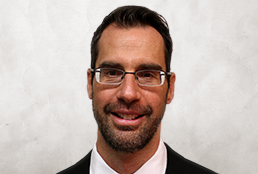For years, the emergency department (ED) has been one of the first places young people go when they have mental health or substance use needs. After being seen by ED staff, they are often referred to other services to receive appropriate care. Now, a new CHÉOS project aims to improve the way youth in the ED are referred to community health services and to promote integration between these parts of the health system.

“Over half of young people in Canada who go to the emergency department with a mental health concern have never been in contact with mental health services before that point,” said Dr. Skye Barbic, CHÉOS Scientist and project co-lead. “They may not know what kind of services are available to them.”
Supported by the Michael Smith Foundation for Health Research (MSFHR) Convening and Collaborating (C2) program, Drs. Barbic and Scheuermeyer aim to improve the transition between emergency medicine and community health services by forging a partnership between Foundry and the BC Emergency Medicine Network.
Foundry is a provincial network of integrated youth mental health services with locations around B.C. The BC Emergency Medicine Network operates out of the University of British Columbia Department of Emergency Medicine, as well as St. Paul’s Hospital, and connects BC emergency practitioners with each other to share and improve practical resources and to discuss important issues facing EDs and their patients.
The MSFHR funding will support the development of a workshop to bring together multiple stakeholders, including community members, care providers, and researchers, to design an intervention to improve how youth are transitioned from the ED to Foundry sites.

“There is currently no emergency department standard of care to connect young people who are having mental health or substance use issues to appropriate services,” noted Dr. Frank Scheuermeyer, project co-lead and Emergency Medicine Program Head at CHÉOS.
By bringing together different stakeholder groups, the researchers aim to develop a clinical care pathway that will involve screening in the ED, referral to Foundry, and active peer support follow-up.
“Every year, over 80,000 young people present to emergency departments around the province, many for mental health reasons,” said Dr. Barbic “There is a significant opportunity to improve well-being and long-term outcomes of these people through promoting collaboration between the currently fragmented segments of the health system.”
Two other CHÉOS Scientists are involved in this project: Drs. David Barbic and Steve Mathias. Dr. Barbic is an emergency medicine research and physician at UBC and St. Paul’s. Dr. Mathias is the Executive Director of Foundry and a clinical assistant professor in the UBC Department of Psychiatry.



